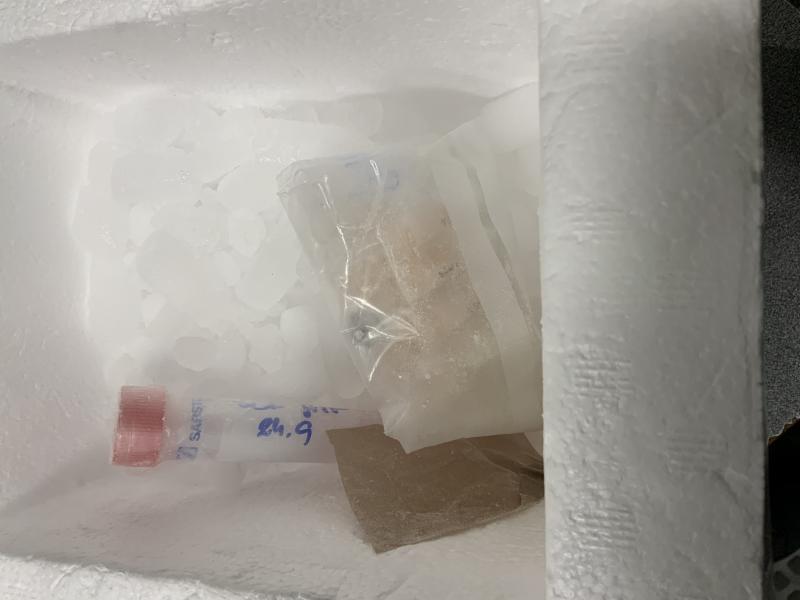ROMULUS, Mich. – U.S. Customs and Border Protection (CBP) Agriculture Specialists intercepted a number of undeclared and unknown biological samples at Detroit Metropolitan Airport last month. The biological samples were discovered when a traveling scholar was referred for a secondary examination and the undeclared items were found in his baggage.

On November 14, a traveler arriving from Poland via Amsterdam failed to declare any research related materials and was referred for a secondary inspection after CBP Officers determined additional checks were necessary. In secondary, the passenger was questioned by agriculture specialists who ascertained the traveler to be a well published professor on infectious and systemic diseases. Subsequent checks of the traveler’s baggage identified unknown vials of biological materials packaged in dry ice. The traveler stated the intended use of the biological material was for his current research in Poland, but could not produce documentation to support his claims.
“CBP plays a critical role in protecting public health, as well as mitigating the effects of prohibited biological items,” said Area Port Director Robert Larkin, “I’m proud of the work our officers and agriculture specialists do every day to prohibit the unauthorized entry of biological materials into the United States.”
Biological materials must be clearly marked, labeled, packaged and/or placarded in accordance with Federal and State requirements to ensure safe transportation of potentially harmful materials. These items are permitted and regulated according to a variety of factors determined by various federal agencies to include the U.S. Department of Agriculture, Centers for Disease Control and Prevention, Food and Drug Administration, Environmental Protection Agency, U.S. Fish and Wildlife Services and U.S. Department of Transportation. More information about obtaining permits for biological materials is available at cbp.gov/biologicals
The contents of the vials were later identified as non-hazardous, non-infectious genetically modified neutrophils and were ultimately destroyed under proper sterilization protocols.

